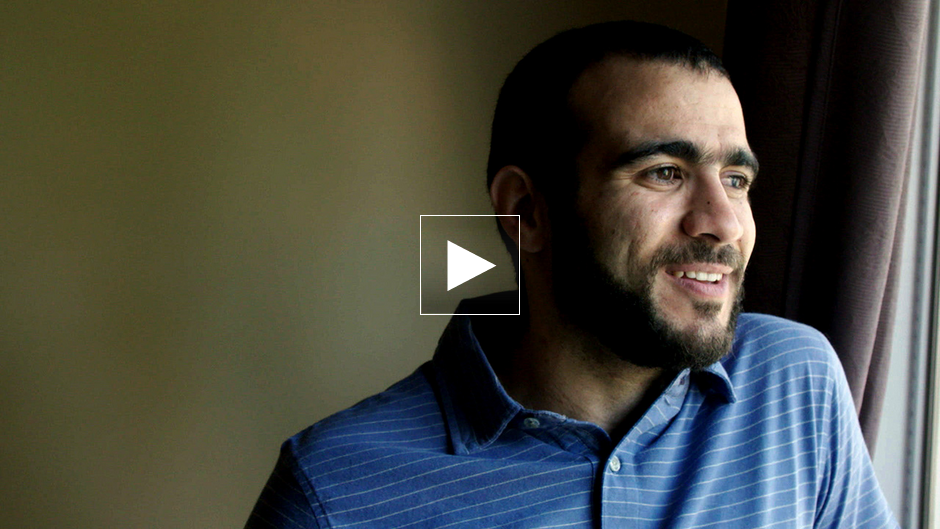If you check out the serious material on the Omar Khadr saga — books by Michelle Shephard or Janice Williamson, documentaries by Terence McKenna, Luc Cote and Patricio Henriquez or, just last week, by Patrick Reed — you’d see that at every stage of Mr. Khadr’s extraordinary voyage there have been persuasive reasons to give him the benefit of the doubt. The Harper government has never once done so.
Mr. Khadr, for example, was no seasoned jihadist. True, a friend of his father had him making explosives for a brief time. But the Afghan firefight — in which the rest of his small band were killed, he was almost fatally wounded and an American soldier was killed — was actually his first and only battle. There is at least a reasonable possibility he did not kill Sgt. Christopher Speer at all; there’s not a single eyewitness that claims he did. He remembers nothing of the battle, even though he has confessed to a deed he does not recollect.
Under the Geneva Conventions, which govern the rules of war, soldiers who kill other soldiers in battle are not committing crimes. Otherwise, how could we have civilized wars? It was only some time after 9/11 that George W. Bush unilaterally decided that al-Qaeda fighters weren’t legitimate wartime combatants entitled to this protection. So Mr. Khadr was found guilty of a crime that wasn’t a crime when it happened — if it happened. And he remains the only person in modern history to be tried for killing another soldier during a battle.
From the first, years before his trial, Mr. Khadr was treated by his American captors as if he was guilty. Over the years, including when he was still legally a child, he endured physical and psychological torture, solitary confinement, endless interrogation, post-traumatic stress, and was subjected to a so-called military justice system widely condemned as a kangaroo court. A series of Canadian governments, both Liberal and Conservative, denied him his rights. He confessed, at his lawyer’s insistence, for fear he’d never ever get out of Guantanamo.
Most troubling, perhaps, he was 15 years old when he was captured. Canada, like most of the world, has long considered anyone in a conflict who is under 18 to be a child and requiring protection. This remains true for the Harper government. As the website of the Department of Foreign Affairs, Trade and Development plainly says today: “Canada has long been recognized as a leading advocate on children and armed conflict….Canada is committed to ending the use of girls and boys in hostilities and to helping ensure that children affected by armed conflict around the world are protected.”
Except for Omar Khadr.
In fact on every count, the Harper government has consistently refused ever to give Mr. Khadr anything like a break. For them he is the very incarnation of every unrepentant Islamic terrorist in the world.
In virtually all Harper endeavours, through the reams of predictable propaganda there emerges a particular spin line that is unfathomable to normal people. This has now happened on the Khadr file, as articulated in recent weeks by Public Security Minister Steven Blaney. As if labelling him a terrorist murderer is not enough, Minister Blaney has taken to impugning Mr. Khadr’s integrity. Mr. Khadr, it seems, has not been honourable in his dealings with an honourable government.
For example, in trying to explain to the CBC’s Evan Solomon why the government keeps challenging Mr. Khadr’s right to be free on bail, Minister Blaney said this: “Someone who pleaded guilty to a horrible crime…this was the basis on which Omar Khadr was brought back into the country. He said: ‘Okay, I’m going to do eight years for those horrible crimes for which I have pleaded guilty, behind bars’, and now he is questioning — challenging — the commitment he made, and he was allowed in Canada on that basis and now he is challenging that position.”
When asked by Evan Solomon whether Mr. Blaney believed Mr. Khadr was now a danger to society, as the government had argued before the courts, the Minister said: “Someone who has pleaded guilty to horrible crime and has agreed to serve a particular sentence, that sentence should be served.”
Note first that Mr. Khadr’s “crime” sometimes get inflated to Mr. Khadr’s “crimes,” and it’s not at all clear whether Mr. Blaney actually means the singular or plural. Yet Mr. Khadr’s entire case, of course, rests on a single death.
But more fundamentally, the government is now arguing that they made a deal with the person they insist is a cold-blooded terrorist murderer who brazenly goes ahead and breaks his promise. An honourable man, it appears, would dutifully have stayed in jail and not sought bail.
So Omar Khadr has double-crossed the good folks in Ottawa who magnanimously allowed him back into Canadian prisons after 13 nightmarish years in foreign prisons. And look how he thanks them. What cheek! No wonder the Harper government won’t ever stop hounding him.
This article originally appeared in The Globe and Mail.
Image from Omar Khadr: Out of the Shadows (CBC, Patrick Reed).



